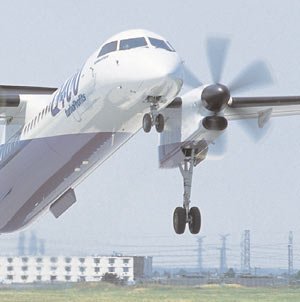
Rating: NNNNN
You’ll forgive us for being a little bugged about city plans, beginning this week, to dump insecticide from a helicopter to save our oaks from the dreaded larvae of the gypsy moth. We’re told not to worry, that the pesticide being used, Btk, is safe. But residents in neighbourhoods slated for the aerial bombardment may be at the mercy of the winds.
Pest plot
To douse 250 hectares (618 acres) of our tree canopy with Btk (Bacillus thuringiensis kurstaki). The city says Btk poses “minimal risk” to human health “when used as directed.”
Makes us feel better
Btk is a specific organic insecticide, a soil bacterium, to be exact, which is to say it won’t paralyze our digestive system the way it does that of European gypsy moth larvae, should we happen to accidentally ingest some. Also, it won’t kill other insects, including honeybees and Monarch butterflies, fish, birds or other mammals.
Weirds us out
Residents in affected areas are being “strongly urged” to close their windows, lock their doors and stay indoors during and for at least 30 minutes after spraying, which is slated to take place between 5 and 7:30 am. And what’s this business about the film we may wake up to find on our aluminum siding or car windshield?
If it’s so safe…
The city also recommends that all children’s toys (bikes, wagons, etc), play equipment, BBQs and patio furniture be covered or brought indoors during spraying.
Speaking of water
The city says, “There are no groundwater contamination concerns” related to Btk. It will take very little liquid – about 4 litres per hectare – to control gypsy moth larvae. But we’re not encouraged by the fact that Btk can percolate through soil to depths of up to 25 centimetres.
Cutting corners
The Toronto Environmental Alliance says aerial spraying should be a last resort but is too often the preferred option of cash-?strapped municipalities because it’s the cheapest way of handling pests. Households are being asked for a voluntary payment of $183 per to cover the cost of spraying.
Clear and present danger
Eco-?friendly alternatives – scraping moth eggs, trapping them in burlap – have been tried. But the city says gypsy moth eggs are too out of control and too high up in the canopy to control effectively from the ground. The city should have seen this coming when outbreak levels were detected two years ago.
Dust in the wind
The goal isn’t eradication, but reduction of gypsy moth larvae to the point where natural controls like maimaiga fungus and parasitic wasps will keep numbers under control. Timing is crucial. Btk must be sprayed just before eggs hatch, but wind conditions make that proposition tricky. One gust and it’s “See you next year.”












